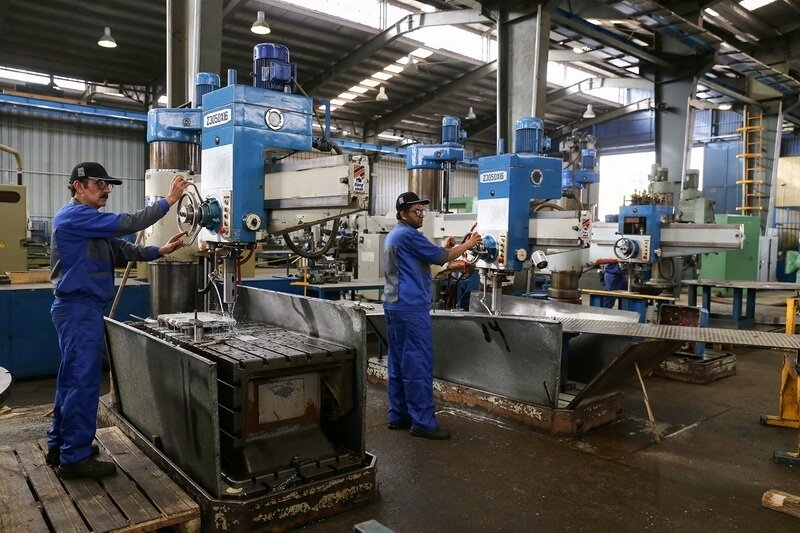Producers to be more supported, encouraged

The current Iranian calendar year of 1398 is named as the year of "Pickup in Production" by Leader of the Islamic Revolution Ayatollah Seyed Ali Khamenei.
The realization of this motto toward Iran’s self-reliance is in fact the only way to tackle the U.S. cruel sanctions on Iran’s economy.
To this end, Iranian government has put supporting domestic producers a top agenda in the current year.
Providing the required working capital for the production units and offering them facilities is one of the major measures being pursued by the government to support these units.
Abdolnaser Hemmati, the governor of the Central Bank of Iran (CBI), has specified providing of working capital for the production units as the major priority of the Iranian banks in the current year.
He said some of the production units have recently faced lack of liquidity because of the high increase in the foreign currency exchange rate in the Iranian market, but it should not prevent activity of these units.
In mid-April, Industry, Mining and Trade Minister Reza Rahmani said the country needs 3.6 quadrillion rials (about $85.714 billion) of working capital in order to sustain the domestic production.
According to the minister, improving the efficiency of important factors in production and creating a movement for promoting domestic production are among the plans which the industry ministry is following to realize a sustainable domestic production.
“Organizing trade logistics, reforming distribution systems and monitoring the market as well as developing non-oil exports along with developing mines and mining sector are other areas of focus for the ministry to boost domestic production”, Rahmani added.
Inactive units to come back to production cycles
Bringing back the inactive production units to the production cycle is the other step by the government, as Rahmani has announced that 2,200 industrial units will come back to the production cycle by the end of the current Iranian calendar year (March 19, 2020).
The minister said, “We have some plans for removing the problems of the units which are facing serious challenges.”
There are some units that enjoy high potential and capacities, but due to some problems such as inadequate working capital they cannot work with full capacity, Rahmani noted, adding, “Our priority in the current year is to facilitate the condition for such units.”
Also, Nematollah Torki, the head of Tehran Province Management and Planning Organization, has said that some 238 production units in the province will come back to the production cycle by the end of current year through receiving required working capital.
Meanwhile, as previously announced by Deputy Industry Minister Mohsen Salehinia, during the current year the government plans to provide facilities under the framework of subsidies for projects with more than 60 percent of physical development, to supply working capital of firms, to renovate production units and etc.
He said that 360 trillion rials (about $857.1 million) of facilities will be granted to the industrial units in this year in the framework of production flourishing plan.
Furthermore, the secretary of the headquarters for facilitating production and removing related barriers announced last week that the government has approved three new enactments on supporting domestic producers. The enactments are mainly on facilitating tax condition for the producers.
Creating competitive condition
In addition to support the production units in different ways, the government is taking some other approaches to encourage domestic producers, for example through banning imports of some products into the country some competitive condition will be created for Iranian producers to produce new products and also promote the quality of their products.
While banning imports of foreign products, the government also is seriously following up the policy of supporting and publicizing domestically-made products.
All these supports and facilities as well as other related strategies provided for domestic production units are hopped to strengthen Iranian producers in a way to make the country more self-reliant and beat the sanctions.
